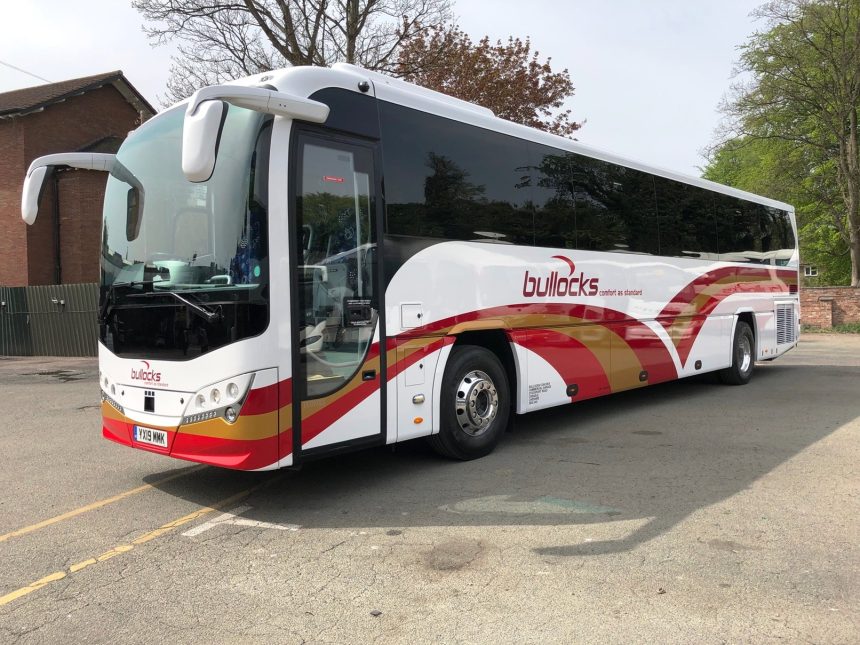A coach operator is seeking clarity on whether it should benefit from business rates reform that will commence with provision of 40% relief to hospitality, leisure and retail properties in FY2025-26 before a permanent reduction to multipliers for them from April 2026.
Bullocks Coaches of Cheadle in Greater Manchester says that if its premises are considered eligible for that categorisation by Stockport Metropolitan Borough Council (MBC), a resulting significant reduction in business rates would offset some of the costs that it will incur via increased employers’ National Insurance (NI) contributions announced recently.
It is understood that some in the coach operator field were considered by their local authority (LA) to be leisure organisations during the pandemic period for the purpose of grants and business rates holidays.
But Stockport MBC did not accept that Bullocks was eligible and hence it did not see those benefits. The central government position is that all such decisions are the responsibility of LAs.
Director Robert Bullock is concerned that the LA will adopt the same approach under the forthcoming reform of business rates for hospitality, leisure and retail businesses. He is seeking feedback from fellow coach operators on how their authorities have, or have not, accepted coach businesses as being part of the leisure sector.
Mr Bullock believes that Bullocks Coaches was not classified thus by Stockport MBC in 2020 “due to central government error.” He adds: “Despite extensive discussions and the hiring of a consultant, we have only received some other grants, and the issues regarding the initial grants and business rates holiday remain unresolved.
“I would appreciate any information from other operators regarding their experiences with the initial grants, business rates holiday and the subsequent business rates reductions. Additionally, if any trade body has taken action on this matter for our industry, I would be grateful for that information as well.”
Planned changes to business rates for hospitality, leisure and retail properties are outlined in a document published by the Treasury in October.
Mr Bullock describes the late October budget as “challenging” but notes that some of its impact could be mitigated if Bullocks can leverage reform of business rates. The operator expects an impact of £615 per employee under the NI changes, with an estimation that it will cost the business up to £50,000 per year.
He adds that the Greater Manchester coach operator is heavily involved in leisure activities, and that it has a small retail section in its office space. However, Stockport MBC maintains that it is ineligible for grants that capture leisure activities due to Bullocks’ yard being classified as storage space.
“My consultant and I have continued to challenge this decision, but we have had no success. In fact, we are still waiting for a response to an email from six months ago.”
If feedback is that most other local authorities have acted like Stockport MBC, Bullocks will likely cease arguing its decision. “But if other operators have been treated differently, I will pursue this further,” says Mr Bullock.
“I would really appreciate any information on what other authorities around the country have done – or have not done – in terms of the initial grants and the business rates holidays and reductions.”
Contact Mr Bullock via email.



























